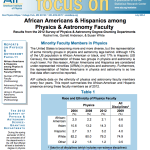By Adrian Florido
NPR, Code Switch, (updated 12/7/15) — Millennials of color — even highly educated ones — are finding it hard to get ahead and build wealth. But why?
In the current issue of Washington Monthly, reporter Mel Jones dives into why the racial wealth gap persists for a generation of young black and brown Americans who’ve had educational and work opportunities rivaling those of their white peers.
A key reason is the direction in which money flows within families. White millennials are more likely to be able to rely on parents for the kind of financial help that leads to upward social mobility — money that sociologist Tom Shapiro calls “transformative assets.” For black and brown millennials, money tends to flow in the opposite direction. Here’s Jones:
“Racial disparity in transformative assets became especially striking to Shapiro during interviews with middle-class black Americans. ‘They almost always talk about financial help they give family members. People come to them,’ Shapiro said. But when he asked white interviewees if they were lending financial support to family members, he said, ‘I almost always get laughter. They’re still getting subsidized.'”
And for black and brown millennials, this picture will probably persist well into the future:
“Ironically, even though black and Hispanic Millennials are less likely to receive financial support from parents, their parents are more likely than white parents to expect their kids to help financially support them later on. According to the Clark poll, upward of 80 percent of black parents and 70 percent of Hispanic parents expect to be supported. And most studies show that a primary reason why people of color are unable to save as adults is because they give financial support to close family.”
The disparity continues even after a family member dies, writes Jones:
“According to the Institute on Assets and Social Policy, white Americans are five times more likely to inherit than black Americans (36 percent to 7 percent, respectively). And even when both groups received an inheritance, white Americans received about ten times more. “It’s really a double whammy,” Shapiro said. On the flipside, black Millennials and other low-asset groups are much more likely to go into debt when a family member passes away. It’s not uncommon for some families to throw bake sales and engage in other fund-raising activities to bury their relatives.”
The full article can be found at Washington Monthly.









